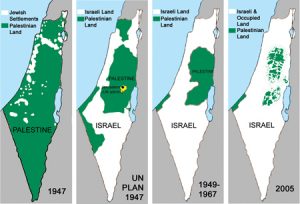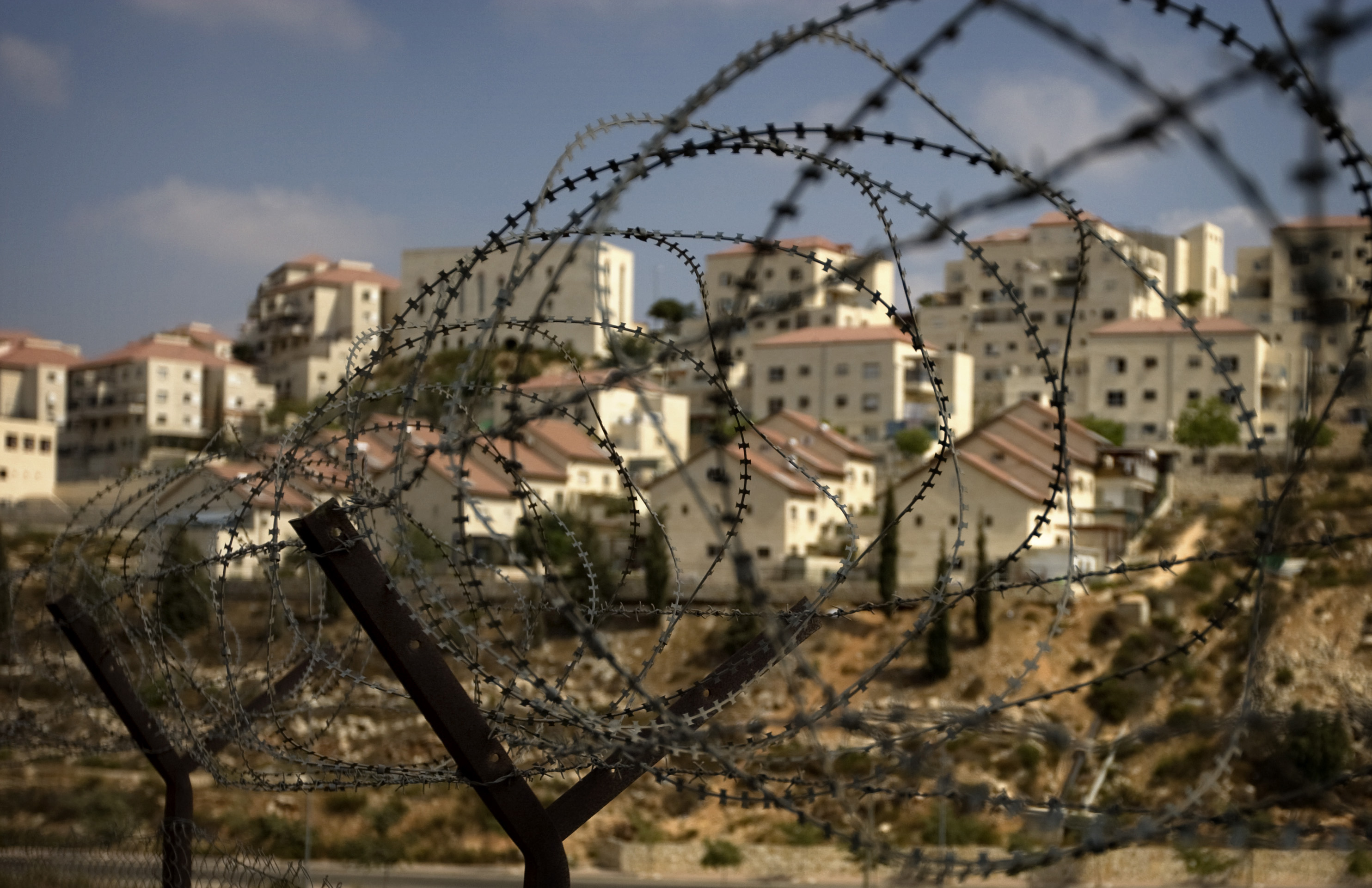On January 30, Israel’s government announced a plan to build 450 new Jewish settler homes in the Occupied West Bank, an Israeli-held territory home to millions of Palestinians. Israel has largely escaped prosecution for these actions largely due to the U.S. and its pro-Israel allies in Europe. For the longest time, the United States has claimed that it wants peace in the region and the conflict to be settled with a two-state solution. One unnamed US official reiterated in late 2014 that “We have long made clear our opposition to continued settlement activity [in the West Bank].” But, despite these strong words, the U.S. has repeatedly vetoed resolutions in the United Nations Security Council condemning the settlements. The most recent example is a rejected draft resolution from February 2011 which condemned the settlements as “illegal” and called for the Israelis and Palestinians to “act on the basis of international law and their previous agreements.” Fourteen members of the fifteen-member council voted for the resolution, including all permanent members except one: the United States.

This is not the first time the United States has enabled Israeli exemption from international law. A draft resolution from January 1976, which called for Palestinians to be able to form their own state and for Israel to withdraw from the Occupied Territories, was felled by a U.S. veto as well. Two months later, another UNSC draft resolution, which condemned Israel’s settlement construction and implementation of policies “designed to change the status of the City of Jerusalem” failed because of a lone veto, again by the United States. The Brazilian ambassador to the U.N., Maria Viotti, stated her country’s view of the veto, referring back to the 2011 draft resolution by saying, “further settlement construction threatens peace in the region… halting construction has been misrepresented as an Israeli concession while in fact international law requires it.” Brazil’s status as a country with no strong leanings towards either side of the Israeli-Palestinian conflict makes this opinion largely reflective of the broader international community’s case against Israel’s continued actions in the Occupied Territories.
In the U.S. media, Israel is presented as the victim in all of this because the Arabs in all surrounding countries supposedly want to wipe Israel off the map. Most Americans still buy this ploy. According to an Economist article from last year, although about 42 percent of Americans condemned the 2014 Israeli attack on the Gaza Strip, a hefty 39 percent of those polled still believed Israel’s actions were completely justified. Compare this to the United Kingdom, a somewhat close ally of Israel, where 52 percent of respondents in a poll believe Israel’s actions in Gaza were unjustified while only 19 percent believed Israel’s actions were justified. This support exists for a variety of reasons: Christian Zionists claim that the “Chosen People” of Israel must be supported for Biblical reasons, some galvanize support for Israel based on their Jewish heritage or faith, and others view Israel as the victim of Arab aggression and “bias” in the media. As a result, the U.S. sends $8.5 million per day, mostly military aid, to Israel while Palestinian groups receive no U.S. aid whatsoever.
However, in the words of Professor Noam Chomsky in a speech given to the UN, it is important to “look at the record.” The pretext for the offensive against Gaza, labelled “Operative Protective Edge,” was that Hamas’ supposed capture of three Israeli settlers in the West Bank had prompted Israel to storm into Gaza to find them before they were killed. As it turns out, the Israeli government was likely aware that these boys were dead before the operation started and Hamas was highly unlikely to be the culprit. The result? 72 Israelis, 66 of whom were soldiers, were killed in the fighting, while 2,192 Palestinians, over 70 percent of whom were civilians, were killed. Hamas, the democratically elected government of the Gaza Strip, managed to negotiate a ceasefire with Israel, but Israel soon ended this and reacted disproportionately to Hamas attacks, as Chomsky explained. When fighting finally ceased later in the year, Israel followed that by a 1000-acre land grab in the West Bank in an effort to establish “Greater Jerusalem” through the seizure of East Jerusalem, the city claimed by Palestinians for their future capital. Not only was this a threat to the implementation of a two-state solution, but also a bold statement about Israel’s true intentions regarding the Occupied Territories and applicable international laws.

Many pro-Israel pundits claim that the land grabs are either decreasing in number or were in areas “that both American and Palestinian leaders recognized in past negotiations would remain part of Israel in any future agreement.” However, the issue here is not the number of settlements, but whether those settlements in the Occupied Territories, and Israeli activities within them, are illegal under international law. To cite Article 49 of the Fourth Geneva Convention of 1949, “The Occupying Power [in this case Israel] shall not deport or transfer parts of its own civilian population into the territory it occupies.” Israel has purposely transferred Jewish citizens to the Occupied Territories with the intent of not only siphoning off resources but also destabilizing the land in which the future Palestinian state would exist. In addition, Article 49 states that “Individual or mass forcible transfers [of people]…to the territory of the Occupying Power or to that of any other country, occupied or not, are prohibited.” Israel has demolished Palestinian homes and forced many into exile in neighboring countries. As Chomsky mentioned in his speech, the unity of the West Bank and the Gaza Strip is something Israel sees as a threat to the status quo since it is the closest thing to a unified Palestine. As a result, Israel has worked to weaken the two in clear violation of the Oslo Accords of 1993, which states that the West Bank and Gaza are “a single territorial unit, whose integrity will be preserved.”
The bottom line: the status quo works much better for Israel than lasting peace. When Israel withdrew military and civilians from the Gaza Strip in 2005, it appeared to be working towards peace. However, Dov Weisglass, a senior advisor to then-Israeli Prime Minister Ariel Sharon, explained that “the goal of the disengagement was the freezing of the peace process so as to prevent the establishment of a Palestinian state.” True to their word, Israel attacked the Gaza Strip a year later after Hamas was democratically elected, indicating Israel’s displeasure with the results. When Hamas pre-empted an U.S.-backed attempted coup to overthrow the government in 2007, Israel attacked again. As seen here, it is not in Israel’s best interests for Gazans to stand behind their democratic government. To explain its actions, Israel claims that it is merely defending itself against the hostile Palestinians. However, according to former Israeli diplomat Abba Eban, “Israel has as much to fear from a Palestinian state as the Soviet Union does from Luxembourg.” If this is true, and the U.S. wants peace, how can Americans still stand with Israel?


